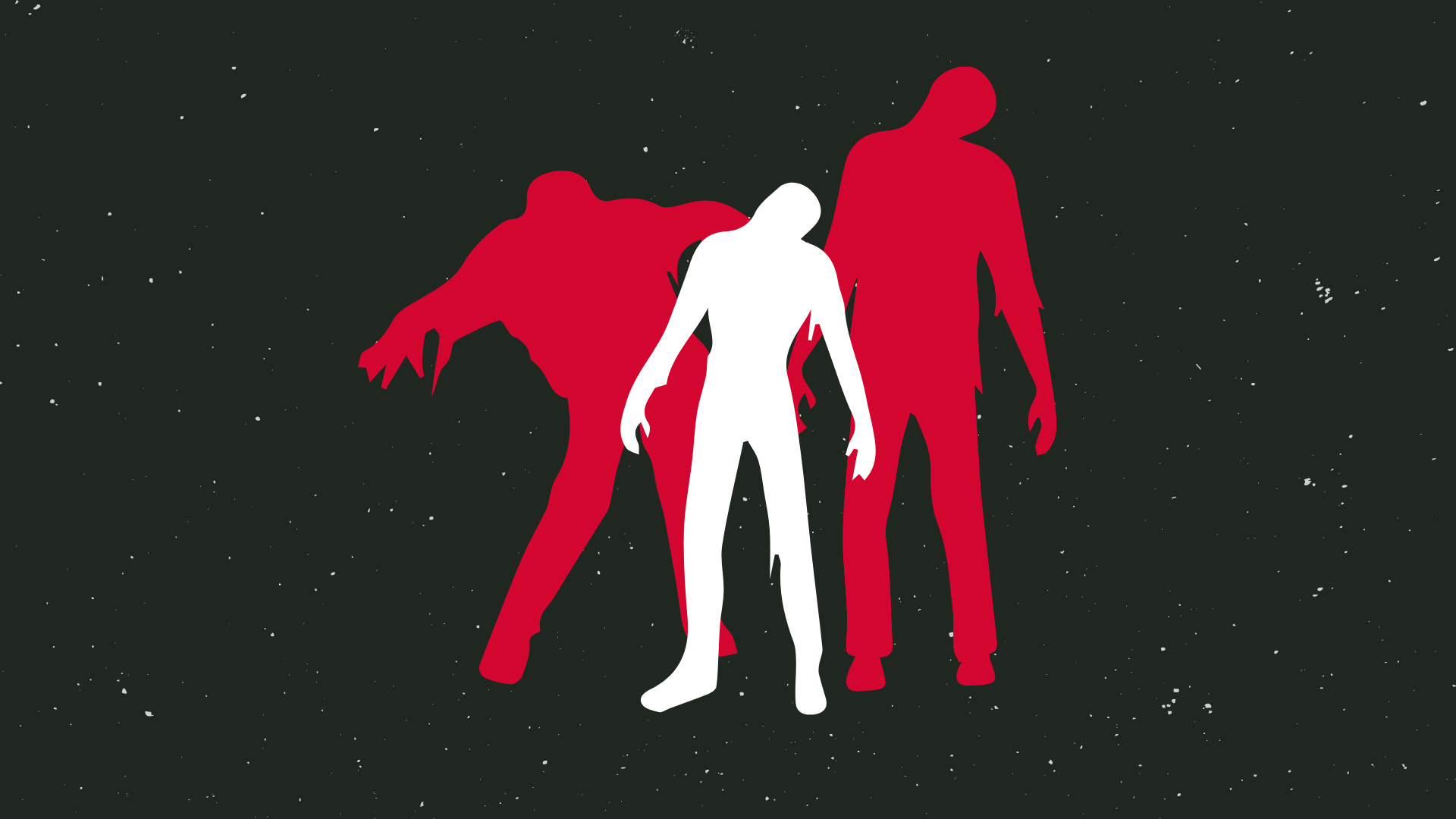Graphic of three zombie silhouettes Canva
Sometimes, it’s easy to see why audiences are attracted to a certain genre. Fantasy stories supply us with adventure-filled worlds to escape into, while romance stories guarantee cheesy, happy endings. Why, though, do we have a fascination with stories about the end of society as we know it?
Firstly, it’s important to identify the conventions of the apocalypse genre and what separates it from similar genres like dystopian fiction.
Apocalyptic and post-apocalyptic media focus on civilization’s collapse and its aftermath. Dystopian fiction, on the other hand, imagines a structured future world full of corruption and suffering. Both genres deal with a changed society, but key differences between the two are crucial.
Apocalypse stories have been popular for decades, and they remain a fixture in pop culture.
For example, “The Walking Dead,”—a popular zombie apocalypse series adapted from comic books of the same name—premiered in 2010 and ran for eleven seasons. Today, several spinoffs still air on Netflix and AMC.
The second season of “The Last of Us” premieres this April on Max and is sure to be a hit considering the first season was lauded by critics as well as fans of the original video game franchise. “The Last of Us” is a post-apocalyptic series following the aftermath of a pandemic.
“28 Years Later” arrives in theaters this upcoming July. The trailer for this post-apocalyptic horror film cemented it as one of 2025’s most anticipated releases.
Audiences are clearly enamored with the idea of society’s decline and destruction. One reason for this could be the current cultural climate we find ourselves in.
The gap between our society and the ravaged, apocalyptic ones we see on screen is shrinking by the day. Maybe we haven’t encountered flesh-eating zombies, but we know what it’s like to live in a society unraveling at its seams.
Wildfires blaze in the west; snowstorms blow through the south. All the while, our president busies himself with tasks like withdrawing the U.S. from the World Health Organization and the Paris Agreement, a treaty involving sustainability and climate change.
Is it really that hard to imagine a world destroyed by disease or natural disasters?
Life imitates art, and the line between the two is blurrier than ever. We watch characters navigate the apocalypse for entertainment, sure. It’s thrilling to watch characters fight zombies and escape dire situations. At the same time, it also serves as a sort of guide.
It’s comforting to see society’s worst-case scenarios play out before we have to live them. A real societal collapse would obviously look much different from any movie or series. Still, there would be stark similarities.
Sticking with the people you love and finding any way to go forward isn’t exclusive to a zombie apocalypse. It’s human nature, and it’s what we’d all do if our world shattered before us. It’s what we do right now, isn’t it?
Movies and shows which heavily focus on the human spirit and examine how much we can endure give us a sense of hope. If these characters can find joy and a reason to live amidst all the destruction, so can we.
From a different standpoint, apocalyptic stories also offer a degree of liberation many audiences crave.
There’s one goal in an apocalypse: survive. Characters are able to shed the burdens of capitalism and the societal roles they’ve been boxed into all their lives, mainly because there’s no use for those things. Careers and finances fall by the wayside when there’s a threat around every corner.
Similarly, characters’ priorities shift to what truly matters. Characters surviving the apocalypse don’t do so in pursuit of wealth or ambition, they do so in pursuit and protection of love. They keep going for each other.
There’s immense danger, of course, but also a chance to start fresh. Where there’s destruction, there’s potential to rebuild as well.
It’s a blank slate which only exists because everything preceding it was wiped clean. It’s different from any new beginning we’d find in real life, at least as of right now.
Stories are only captivating if we can see ourselves in them. Unfortunately, it’s easier and easier to see ourselves in apocalyptic media. They show us a world transformed, but not altered beyond recognition.
There’s familiarity in the characters and their desire for love, survival, and freedom.
Next time you tune in to watch the latest apocalyptic show or movie, think about why you’re so invested in the characters and plot. The answer is much more nuanced than you may think.
